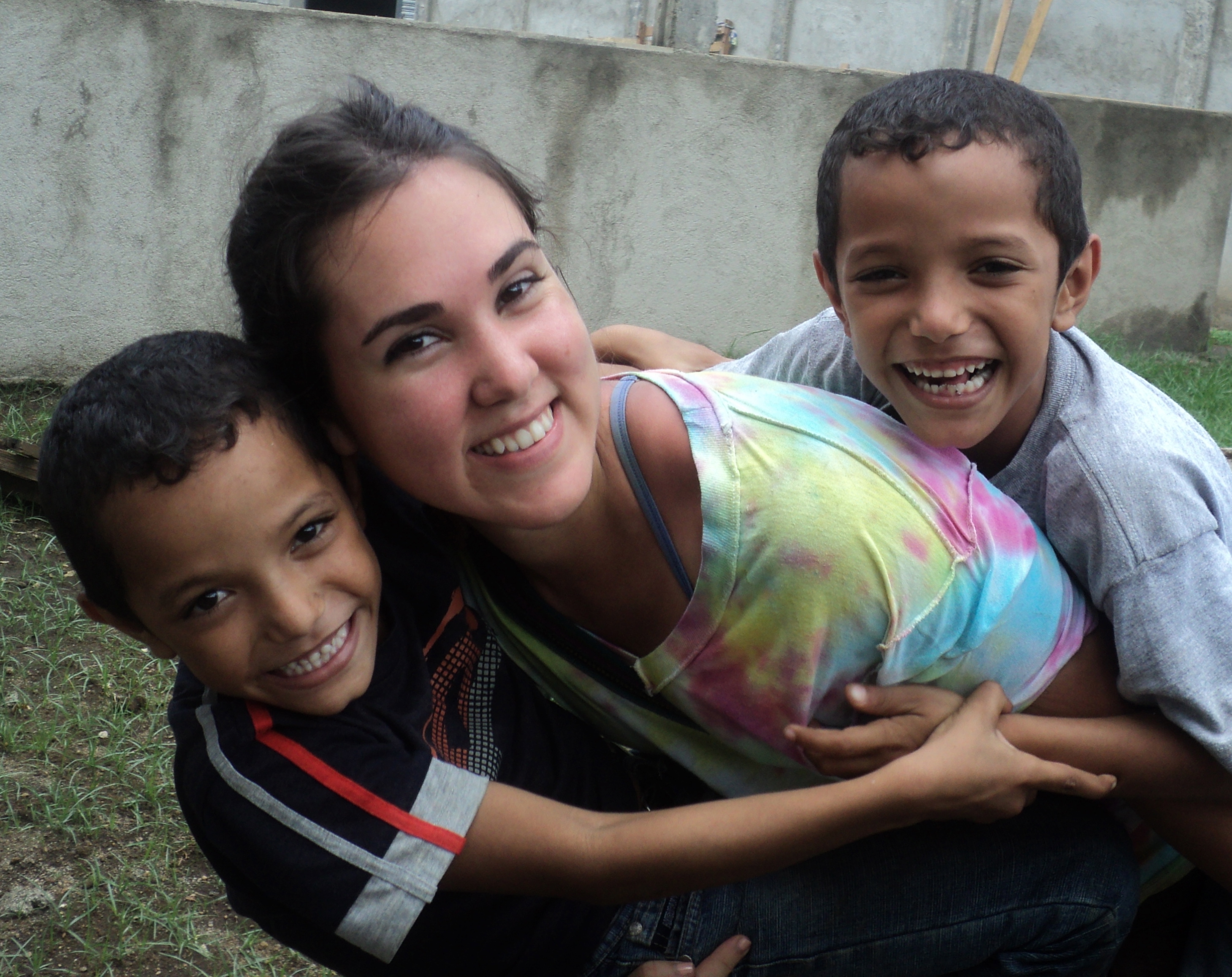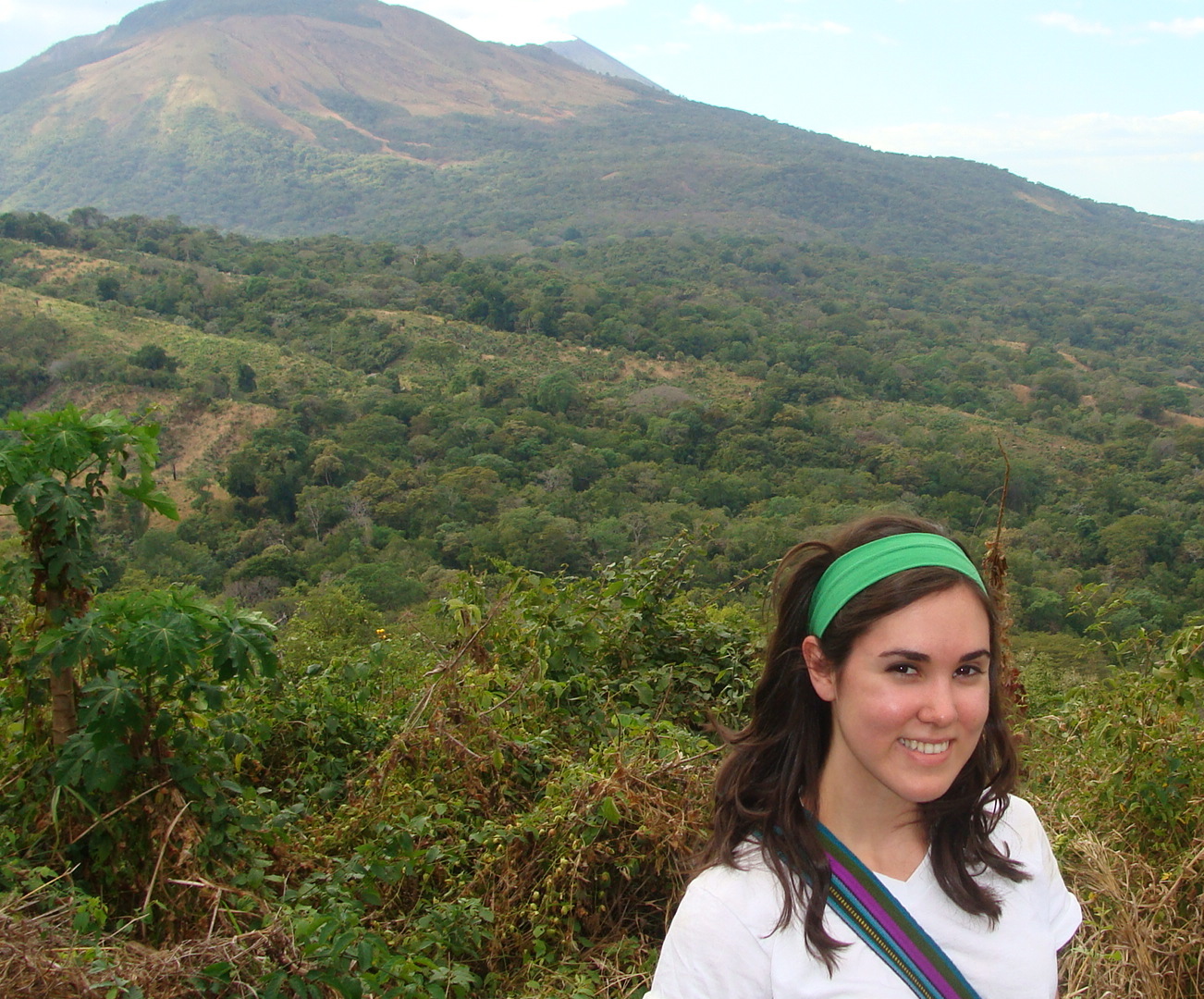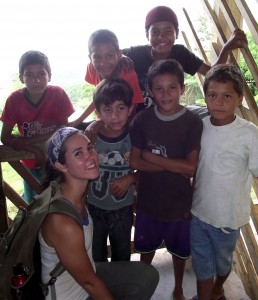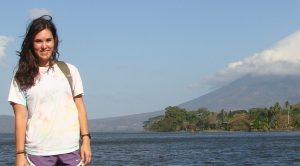 Liz Haight’s experience in a service-learning class in Nicaragua led her back there following graduation. Haight (’10), a political science and Spanish major originally from Hilton Head, S.C., now works for the Jubilee House Community-Center for Development in Central America, in Managua, Nicaragua.
Liz Haight’s experience in a service-learning class in Nicaragua led her back there following graduation. Haight (’10), a political science and Spanish major originally from Hilton Head, S.C., now works for the Jubilee House Community-Center for Development in Central America, in Managua, Nicaragua.
Can you tell me briefly about your first trip to Nicaragua?
The summer of 2008 I was part of the Pro Humanitate Center’s service-learning trip to Managua. It combined two courses, a humanities course on Central American history and society and a business course on NGOs in the developing world, with an internship component. My internship was with a non-profit called Nica HOPE, which works with children who live in the Managua dump called La Chureca.
 What stood out most about your experience there?
What stood out most about your experience there?
This was my first experience in a developing country and my first experience coming in contact with abject poverty. We were required to do research on our worksites before we left campus so I had seen harrowing images of the dump but I surprised myself by how I unprepared I was mentally and emotionally to face the dump. This was not just an underserved impoverished population, the people who lived in La Chureca were at the farthest margin of society, living off others’ waste. And what’s more is that by no means is La Chureca one of a kind. Working with Nica HOPE, an organization which works to help the children of La Chureca escape the cycle of poverty, solidified my interest in pursuing a career in development.
Have you returned there since you have been back in Nicaragua?
Yes. Most of the landfill has been leveled. The Spanish Agency for Cooperation in International Developmen is helping the mayor’s office of Managua turn La Chureca into a waste processing plant and building housing to move the people of La Chureca out. The progress has been slow and has had some issues, but it’s something.
Why did you want to return to Nicaragua?
After graduation I interned with the Washington Office on Latin America, a human-rights policy NGO, while applying for work opportunities abroad. Then I accepted the position I have now as Volunteer Coordinator with the Jubilee House Community-Center for Development in Central America in Ciudad Sandino, outside Managua. I met this organization as part of the business course on NGOs I took down here with Wake. I was pretty obsessed with them from the get-go. JHC-CDCA’s work has evolved over time with the needs and interests of the communities they work in. In the beginning they did a lot of work with community organizing and relief work after Hurricane Mitch in 1998. Now the focus of their work is in sustainable agriculture and sustainable economic development; they also run a clinic in a poor barrio, and work with volunteers. I am their volunteer coordinator, so now I am in charge of other people’s service-learning experiences! My job description varies; from one day to the next I can be tutoring a cooperative in English to working with a medical delegation in the clinic.
 Do you feel that you’re making a difference?
Do you feel that you’re making a difference?
My motive for coming back here was to learn from an organization I admire. Development is a tricky business; I wrestle with what I think my role in this field should be. I want to be part of work that is welcome, sustainable, and not paternalistic. I’ve learned a lot from JHC-CDCA about respectful development work, understanding that the first world does not have the answers for the third world but can “partner with the poor” through community-focused accompaniment and advocacy. Living and working in another culture can be challenging and I’ve had a few snafus. It’s also hard to really relate to people who have had so many struggles when you come from a life of privilege. But I have found Nicaraguans to be very open and patient.
Have you met other Wake Forest professors or students who have come to Wake Forest’s Casa Dingledine in Managua?
I went to the dedication of Casa Dingledine back in February where I saw some familiar faces including one of the professors I did the service-learning trip with, Holly Brower. It was sort of surreal seeing Dr. Hatch and all those Winston-Salem faces in Managua. But I’m excited that my alma mater has made a commitment to work in Nicaragua. My organization has a relationship with Wake as well, particularly through the law school.
 What do you envision doing next?
What do you envision doing next?
My commitment with JHC-CDCA is until next March, so it will be a little over a year in total. I am hoping to stay in the region so I am exploring some other opportunities including Peace Corps. Much to my parents’ chagrin, I’m not ready to leave Central America. I like the challenge of living in another culture and every day is an adventure. Plus I can hop on a chicken bus to tropical locales on the weekends.
Where there any professors at Wake Forest who inspired you on this path?
The two professors that led my Wake program down here, Jane Albrecht and Holly Brower. They have been incredible mentors. I still go to them for advice and support.


